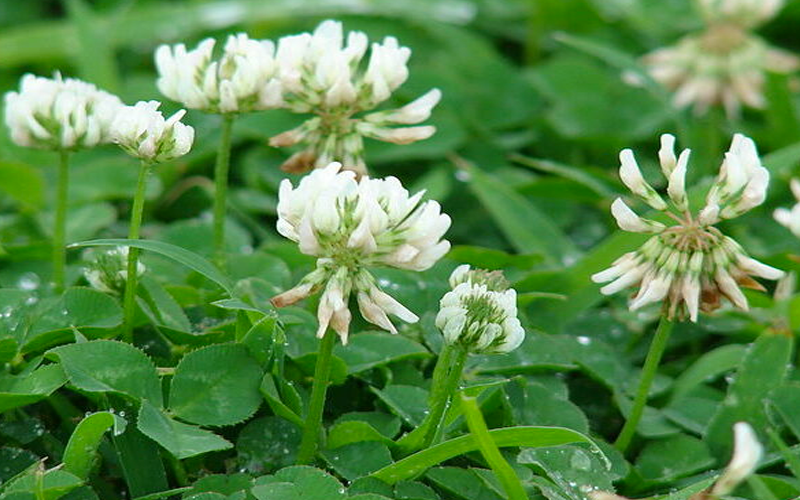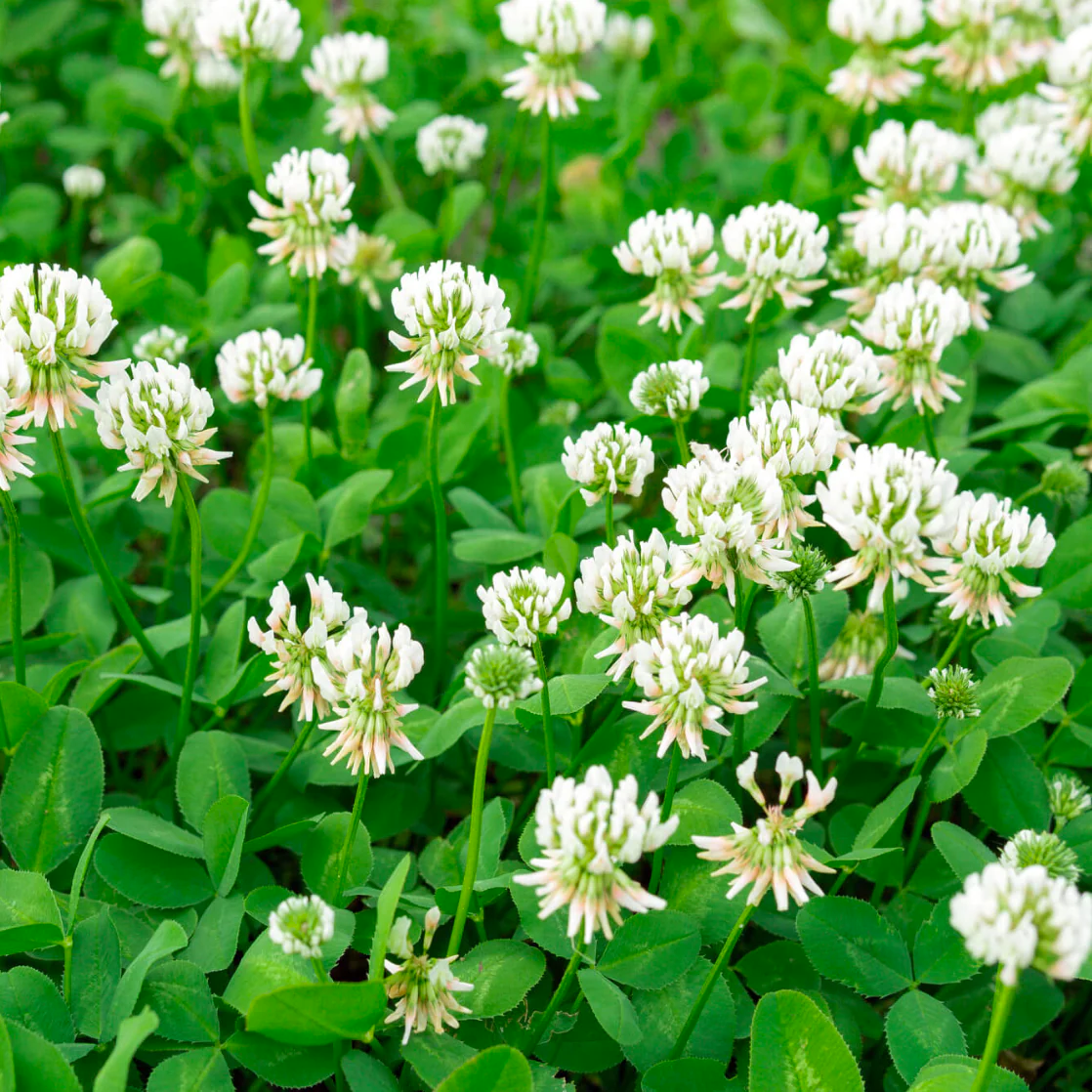2023 Cover Crop Seed
White Dutch Clover
Distribution
2 lb will broadcast over approximately 6,500 square feet
Season
All seasons in Hawaii
FREE LOCAL PICKUP
In Kaneohe, Oahu
2lb. Bag
$19.00
Out of stock



White Dutch clover (Trifolium repens) is a popular and versatile perennial legume that is used for various purposes in agriculture, landscaping, and land management. Here are three main uses for white Dutch clover:
Ground Cover and Lawn Enhancement: White Dutch clover is commonly used as a ground cover and as an alternative or addition to traditional grass lawns. It forms a low-growing, dense mat of foliage that helps suppress weed growth, reduces soil erosion, and provides a green cover. Many people appreciate the aesthetic value of the small white flowers that dot the clover, adding a touch of color to the landscape. Additionally, white Dutch clover is often more drought-tolerant than some grasses, requiring less water to maintain its appearance.
Nitrogen Fixation and Soil Enrichment: White Dutch clover is a nitrogen-fixing plant, meaning it has the ability to convert atmospheric nitrogen into a form that plants can use for growth. This nitrogen-fixing capability benefits not only the clover itself but also surrounding plants. When used as a cover crop or interplanted in vegetable or flower beds, white Dutch clover can contribute to improved soil fertility by adding nitrogen to the soil. This reduces the need for synthetic nitrogen fertilizers and promotes more sustainable farming and gardening practices.
Forage and Livestock Grazing: White Dutch clover is also used as a valuable forage crop for livestock. It offers good nutritional value and palatability, making it suitable for grazing by various livestock species, including cattle, sheep, and rabbits. The clover’s small leaves and abundance of flowers provide a continuous and diverse source of forage throughout the growing season. Additionally, the nitrogen-fixing capabilities of white Dutch clover can benefit pastures by improving soil fertility and reducing the need for additional nitrogen inputs.
It’s worth noting that the uses of white Dutch clover can vary depending on local climate, soil conditions, management practices, and the specific goals of the landowner. When considering using white Dutch clover, it’s a good idea to consult with local agricultural extension services or experts to determine the best ways to incorporate it into your landscape, whether for lawn enhancement, soil improvement, or forage production.
